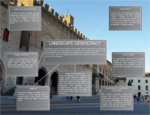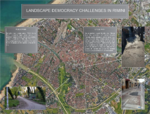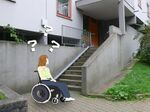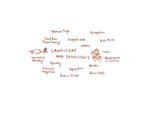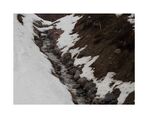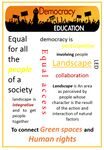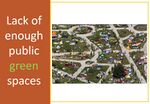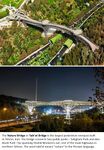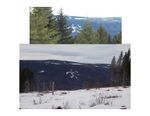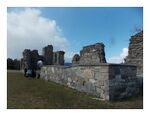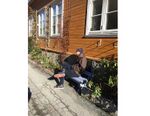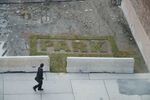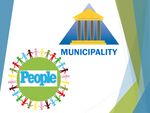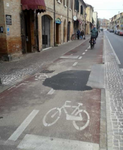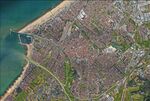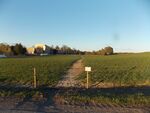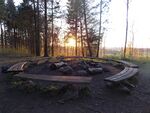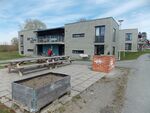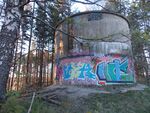LED Online Seminar 2017 - Working Group 9
--> Back to working group overview
Dear working group members. This is your group page and you will be completing the template gradually as we move through the seminar. Good luck and enjoy your collaboration!
Assignment 1 - Reading and Synthesizing Core Terminology
- You can read more details about this assignment here
- Readings are accessible via the resources page
Step 1: Your Landscape Democracy Manifestoes
Step 2: Define your readings
- Please add your readings selection for the terminology exercise before April 12:
A: Landscape and Democracy - Mapping the Terrain
Landscape Concepts:
- Lynch, Kevin. (1960): The Image of the City, Cambridge, Mass.: MIT Press (Luca)
B: Concepts of Participation
- Gaventa, John: The Powerful, the Powerless, and the Experts (Florian)
C: Community and Identity
- Welk Von Mossner, Alexa (2014): Cinematic Landscapes, In: Topos, No. 88, 2014. (Negar Rezaei Azghandi)
D: Designing
- Salgado, Mariana, et al. (2015): Designing with Immigrants (Malene)
E: Communicating a Vision
Steps 3 and 4: Concepts Selection and definition
- Each group member selects three relevant concepts derived from his/her readings and synthesize them/publish them on the wiki by April 30, 2017
- Group members reflect within their groups and define their chosen concepts into a shared definition to be posted on the wiki by May 10, 2017.
- Other group members will be able to comment on the definitions until May 20, 2017
Concepts and definitions
Author 1: Florian
- the knowledge society [Gaventa, John: The Powerful, the Powerless, and the Experts]
- Society has shiftet from an industrial one to a "knowledge society". Nowadays the knowledge producing industries like education, reasearch, development, media and communication are the most important ones. Scientific expertise is of a higher value than experience. Thereby people are disadvantaged and more powerless by having less scientific knowledge.
- research with the people [Gaventa, John: The Powerful, the Powerless, and the Experts]
- To narrow the gap of knowledge in society, professionals need to research with the people. Thereby socially powerless groups can get into action. The researcher (the expert) starts with questions risen by the powerless groups and gives them back comprehensive information.
- towards a knowledge democracy [Gaventa, John: The Powerful, the Powerless, and the Experts]
- The economic production is controlled by a few people of dominant knowledge. This needs to be changed to realize a real political democracy.
Author 2: Negar Rezaei Azghandi
- [Welk Von Mossner, Alexa (2014): Cinematic Landscapes, In: Topos, No. 88, 2014]
- Exposing the landscape crisis for the society and people through the movies, because sometimes the natural environment are interfered by the human.
- [Welk Von Mossner, Alexa (2014): Cinematic Landscapes, In: Topos, No. 88, 2014]
- Utilization of real landscape in making a movie as a cinematic landscape. Because, Cinematic landscape is often the result of all kinds of trickery.
- [Welk Von Mossner, Alexa (2014): Cinematic Landscapes, In: Topos, No. 88, 2014]
- Importance of authenticity of landscape especially for making films when it plays an important role and also using the landscape as a kind of mirror of feelings.
Author 3: Luca Maresi
- Imageability[Lynch, Kevin. (1960): The Image of the City, Cambridge, Mass.: MIT Press]
- It's the "quality in a physical object wich gives it a high probaility of evoking a strong image in any given observer" that it's essential to the city's buildings in order to create a link of affinity in the two way process between the inhabitant and the city itself.
- Equilibrium [Lynch, Kevin. (1960): The Image of the City, Cambridge, Mass.: MIT Press]
- To be percevied as whole, organic and beautiful the city needs a correct interrelation between its elements, paths, edges, districts, nodes and landmarks avoioding the over-concentration of elements in different areas that tear apart the urban fabric and create inequalities.
- Direct Analysis [Lynch, Kevin. (1960): The Image of the City, Cambridge, Mass.: MIT Press]
- The analysis of the esxisting is essential and a good starting point of every consideration but most of all, expecially facing different realities, the contact with the people who live everyday those cities is vital to have a complete scheme of inner and esternal views.
Author 4:Malene Øien Eiksund
- Salgado, Mariana, et al. (2015): Designing with Immigrants*.......
If we consider design a question of “problem-defining” rather than “problem solving” (Kalantidou & Fry, 2014, 5), including immigrants in participatory design processes is key to transformative actions capable of producing social change.
- Designing with immigrants is good because it is not language based, bud image based instead.
Step 5: Reflection
- Please write, as a group, a 250 words reflection on your discourse and document it here
Step 6: Revised manifestoes
- please look again at your initial manifestoes and update them with any new aspects/prespectives you have taken up during this seminar
- Updatedmanifesto1.jpg
xy's updated manifesto
- Updatedmanifesto2.jpg
xy's updated manifesto
- Updatedmanifesto3.jpg
xy's updated manifesto
- Updatedmanifesto4.jpg
xy's updated manifesto
- Updatedmanifesto5.jpg
xy's updated manifesto
Assignment 2 - Your Landscape Symbols
- You can read more details about this assignment here
Landscape Symbols Author 1: Negar Rezaei Azghandi
Landscape Symbols Author: Luca Maresi
Landscape Symbols Author 3: Florian Matthies
Landscape Symbols Author 4: Malene Eiksund
This man is cut out in the mountain of the city of Lillehammer in Norway. The city was the place of the winter Olympics in 1994 and the man is carrying the olympic fire. In the old Greece fire symbolised a connection with the Gods.The Olympic games and sports was a way that man could be close to the Gods.
This is the riuns of a monastary located on an island called Tautra in the middle of Norway. The ruins are well visited and symbolises the old history and traditions especially for handcrafts like beer making and soap making. These traditions are followed on by the people living at the island today.
Assignment 3 - Role Play on Landscape Democracy "movers and shakers"
- You can read more details about this assignment here
Assignment 4 - Your Landscape Democracy Challenge
- You can read more details about this assignment here
- Each group member will specify a landscape democracy challenge in his/her environment
Landscape Democracy Challenge 1: Negar Rezaei Azghandi
- Give a title to your challenge
Your references:
- ...
- ...
Landscape Democracy Challenge 2: Florian Matthies
- Give a title to your challenge
Your references:
- graphic reference: own research
Landscape Democracy Challenge 3: Luca Maresi
- A Cycle Path for Everyone
Your references:
- ...
- ...
Landscape Democracy Challenge 4 Malene Øien Eiksund
- Who uses, ownes and who restores?
what is the issue/conflict? The issue in all of these cases is who uses them, who ownes them and who restores them. (2) The second picture is of a fire place in the woods close to my school. It is used by a lor of people and is shared. But who fixes and restores the place. Is it the people who own the woods, the municipality or is the people who uses it?
who are the actors? The actors in these cases are the owners of the properties, the ones who are using the area or renting, and the municipality. (4) This fourth picture is of a wather tower in the forest close to my house. The tower is the property of the municipality, but locals have used graffiti on the walls illegally. Who is here in charge of restoring it, is it the municipality or the people who painted it illegally? Or is the municiplaity okay with the graffiti?
Your references:
- Pictures by me
Assignment 5 - Your Democratic Change Process
- You can read more details about this assignment here
- After documenting and reflecting on your challenges you will continue jointly with one of these challenges and design a democratic change process
Your Democratic Change Process
- Add the title of your project
- Yourgroupname 2017 powermap.jpg
a power map identifying who is affected by the challenge and who is influencing it
- Yourgroupname 2017 change process (1).jpg
Look at the various methods and tools available and think how they can be applied creatively. Think about the needs of different stakeholder groups - you may need a methodical mix to address them all. Illustrate graphically how these methods/tools might be applied in a short, medium and long-term perspective.
- Yourgroupname 2017 scenario.jpg
a scenario illustrating how these tools can be applied within a short, medium and long term perspective involving the groups you want to address, this should include a process timeline
Reflection
- Evaluate in the group how far your ideas either built on the theoretical frame that has been introduced to you during this seminar or react to this by filling a potential gap (approx 150 words)
Your references
- ....
- ....
- ....
- ....
